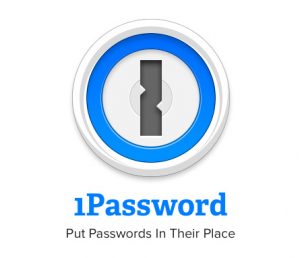We live in a digital age where multitudes of information are exchanged daily, so it can be hard to keep your online privacy safe. In these exchanges, you should never presume that the information you share is private or safe. Data collection is a big business and metadata, or the summary of online information and data, carries a nice price tag as it takes a snapshot of your online habits and activity. Nearly every online business has some incentive to collect and store this information. In some cases, the data is collected and sold to third-party companies. While it may not be possible to keep everything you do online private, there are a few things you can do to protect yourself.
Begin keeping your information safe by protecting your WiFi network, using a virtual private network (VPN), using security monitoring software, and backing up everything. Below we explore these in more detail and learn easy application tips.
1 – Keep Your Online Privacy Safe: Protect Your WiFi Network
Securing your home WiFi is paramount. If someone is getting a free ride on your WiFi, they could possibly access other computers on the network including those in your home. It is a good recommendation to use WPA-2 encryption with your WiFi router along with a strong password. To add an extra level of security, use a hidden or masked network. A hidden network will not show up when browsing what networks are available, so you must manually enter the username and password. This may seem like a hassle, but a username and password are usually not enough to truly secure a WiFi network.
There are some great apps to help you monitor WiFi networks. One of the best WiFi monitoring apps I use? Fing.
Fing also has a Fingbox which allows you to monitor the network remotely. If you live in a densely populated area where your network can be accessed by multiple people (i.e. apartment building), it might be a good idea to add an extra layer of security to your WiFi.
2- Use A Virtual Private Network (VPN)
One way to protect your online identity is with a virtual private network (VPN). A VPN works by routing of all your internet traffic to a private server and hides your IP address replacing it with the IP address of the server. The VPN encrypts all the information traveling from your computer to the exit point of the VPN network. A VPN is very useful when using a public WiFi network because it prevents the people on your network from seeing this information. Public WiFi is very unsafe, and VPN services are not expensive, some are even free.
When searching for a VPN service, you want to find one that does not log information to ensure your privacy is being protected. A few VPN services that are log-free are found in the link below. Make sure to look at reviews and determine for yourself whether or not the service is credible.
A VPN Router can be configured with a VPN to keep all the traffic moving through the router secure. These routers cost more than the average, however, you are paying for the security and anonymity they bring.
3 – Keep Your Online Privacy Safe: Use Secure Passwords
Usernames and passwords are important. Using the same username and password can put you at risk It is using one key to be used for multiple doors so to speak. Most accounts you create are associated with your email, so if one account is compromised, it could allow the perpetrator to figure out other accounts under the same email address. If you use the same username and password for multiple accounts, then one compromised account puts all of the other accounts at risk. Using a different password and username combination is especially important for any account with financial information (i.e. PayPal, Amazon, eBay, subscription services).
It is very hard to keep track of various accounts and passwords by yourself. To keep track of passwords I recommend using a password manager. Some password managers are better than others. The two password managers I usually recommend are:
4 – Use Security and Monitoring Software
Security and monitoring software can be really helpful. I always like to have some kind of antivirus/antimalware program on my computer. This is especially critical if you are using Windows OS. Some trusted favorites? McAfee and Norton. They address antivirus and malware protection.
It is never a good idea to open any kind of file you do not recognize. Especially if downloaded from the internet. Stay away from websites that use Flash when surfing the internet. Flash is a security risk, and using Flash can transfer malicious software onto your computer. Only use Flash if you are on a well-established and respected website. I recommend disabling Flash on your browser or computer to minimize threats.
5 – Back up everything
If you are a victim of a malicious attack, it is crucial to have your data backed up. Over the past few years, many people have fallen victim to ransomware. Ransomware allows someone to take over your computer and hold it hostage in return for money. Viruses, malware, and ransomware are less threatening when your computer is backed up. You can always restore information from a backup. If your computer is not backed up, it is exponentially more difficult to fix it once it has been compromised.





